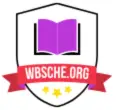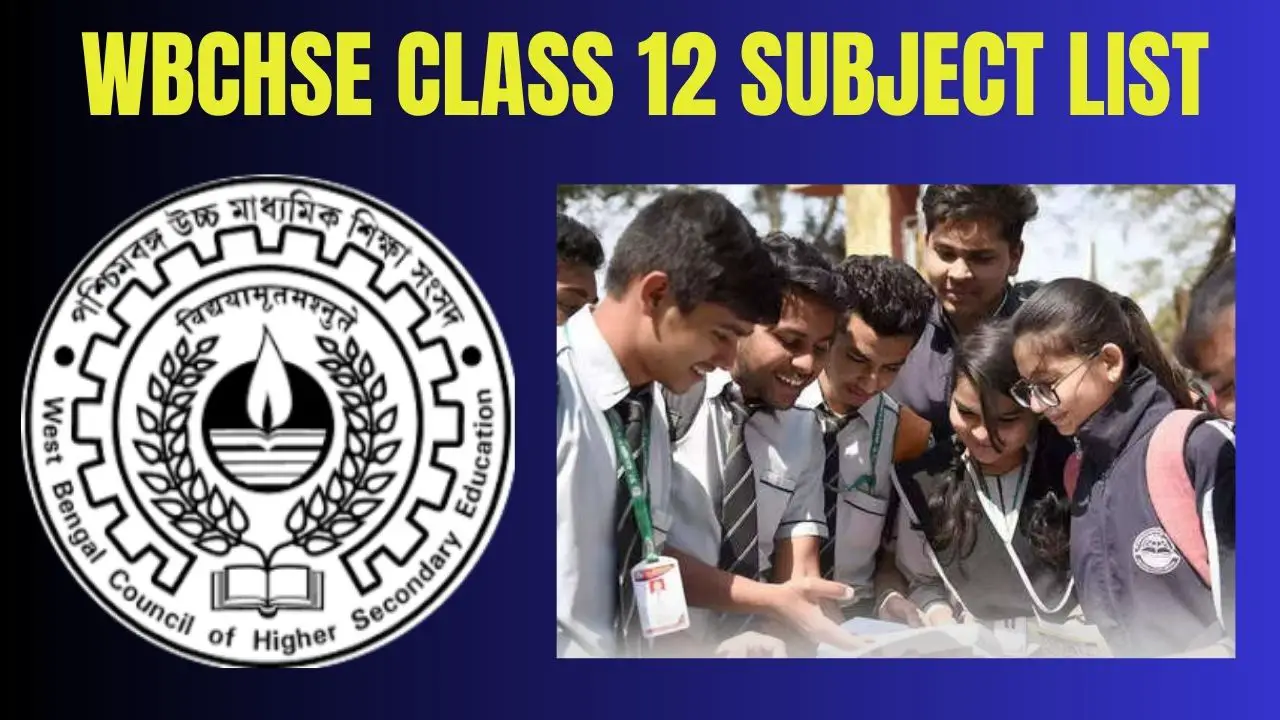The West Bengal Council of Higher Secondary Education is the organization responsible for overseeing the administration of the high school (Class 12) examinations throughout the state of West Bengal. The board not only conducts these exams but also sets the syllabus and curriculum for Class 12. The West Bengal Board (WBCHSE) Class 12 syllabus plays a significant role in guiding the course for students. Students can use it as a reference to better understand the structure of the course, including the lessons and subjects that will be covered, the assignments, and other course goals and aspirations.
The syllabus provides a comprehensive overview of the course material and what students are expected to learn during the academic year. This detailed guide assists students in developing a clear understanding of the subjects they are studying, which is essential for their academic success. The West Bengal Board (WBCHSE) Class 12 Syllabus is designed to provide students with a strong foundation and equip them with the necessary knowledge and skills required for their future academic and professional pursuits.
It covers a wide range of subjects, including languages, social sciences, mathematics, and sciences, which are crucial for students to develop a well-rounded education. The West Bengal Board (WBCHSE) Class 12 Syllabus is regularly reviewed and updated to ensure that it remains relevant and aligned with current academic trends and requirements. Overall, the syllabus serves as an essential resource for students, teachers, and educational institutions in West Bengal, providing a solid framework for academic excellence and achievement.
WBCHSE Class 12 Subject List
According to the academic requirements, students are obligated to choose three Compulsory Elective subjects and one Optional Elective subject from a designated set of subjects. Students must confine their choices to any one of the provided sets of subjects with assigned codes. It is essential to note that students who opt for a Vocational subject are not permitted to select Physical Education (PHED), Music (MUSC), Visual Arts (VISA), or Economics (ECON) as their elective subject.
This restriction applies to ensure a balanced and diverse academic curriculum that caters to the student’s educational needs and interests. By offering a variety of subject choices, students can tailor their academic paths according to their interests, strengths, and future career goals. It is essential for students to make informed decisions when selecting their elective subjects to ensure that they make the most of their academic opportunities and achieve their desired academic outcomes. The academic institution aims to provide students with a well-rounded education that prepares them for the challenges and opportunities of the future.
| Stream | Subjects |
| Science | 1. Physics (PHYS) or Nutrition (NUTN) 2. Chemistry (CHEM) or Economics (ECON) 3. Mathematics (MATH) or Psychology (PSYC) or Anthropology (ANTH) or Agronomy (AGNM) 4. Biological Science (BIOS) 5. Statistics (STAT) or Geography (GEGR) 6. Computer Science (COMS) or Modern Computer Application (COMA) or Environment Studies (ENVS) 8. One Vocational out of 13 subjects [(1) It & Ites (ITEV), (2) Automobile (ATMV), (3) Organised Retailing (ORTV), (4) Security (SEUV), (5) Health Care (HLCV),, (6) Electronics (ELTV), (7) Tourism & Hospitality (THLV), (8) Plumbing (PLBV), (9) Construction (CNSV), (10) Apparel (APLV), (11) Beauty & Wellness (BWLV), (12) Agriculture (AGLV) & (13) Power (POWV)] offered by Council to some approved schools. |
| Commerce | 1. Accountancy (ACCT) 2. Business Studies (BSTD) 3. Commercial Law and Preliminaries of Auditing (CLPA) 4. Costing and Taxation (CSTX) 5. Economics (ECON) 6. Modern Computer Application (COMA) or Environment Studies (ENVS) or Health & Physical Education (PHED) 7. Mathematics (MATH) 8. One Vocational out of 13 subjects [(1) It & Ites (ITEV), (2) Automobile (ATMV), (3) Organised Retailing (ORTV), (4) Security (SEUV), (5) Health Care (HLCV),, (6) Electronics (ELTV), (7) Tourism & Hospitality (THLV), (8) Plumbing (PLBV), (9) Construction (CNSV), (10) Apparel (APLV), (11) Beauty & Wellness (BWLV), (12) Agriculture (AGLV) & (13) Power (POWV)] offered by Council to some approved schools. |
| Arts | 1. Political Science (POLS) 2. Education (EDCN) or Nutrition (NUTN) 3. Journalism & Mass Communication (JMCN) or Sanskrit (SNSK) or Persian (PRSN) or Arabic (ARBC) or French (FRNC) 4. Philosophy (PHIL) or Sociology (SOCG) 5. Economics (ECON) 6. History (HIST) or Anthropology (ANTH) or Psychology (PSYC) or Mathematics (MATH) or Agronomy (AGNM) 7. Geography (GEGR) or Home Management & Family Resource Management (HMFR) 8. Music (MUSC) or Visual Arts (VISA) or Health & Physical Education (PHED) or Modern Computer Application (COMA) or Environment Studies (ENVS) 9.One Vocational out of 13 subjects [(1) It & Ites (ITEV), (2) Automobile (ATMV), (3) Organised Retailing (ORTV), (4) Security (SEUV), (5) Health Care (HLCV),, (6) Electronics (ELTV), (7) Tourism & Hospitality (THLV), (8) Plumbing (PLBV), (9) Construction (CNSV), (10) Apparel (APLV), (11) Beauty & Wellness (BWLV), (12) Agriculture (AGLV) & (13) Power (POWV)] offered by Council to some approved schools. |
Must Read: BEML Recruitment 2023: How To Apply, Selection Process, Eligibility Criteria!
Advantages of the WBCHSE Class 12 Syllabus
The West Bengal Board HS (Class 12) syllabus provides several advantages to students who are preparing for the Class 12 board exams. Firstly, the syllabus gives students a comprehensive understanding of the topics and lessons included in the course material. This knowledge is vital for students as it helps them plan their studies and prepare for exams more effectively. With a clear understanding of the course material, students can manage their time efficiently and focus on areas where they need to improve.
Secondly, the West Bengal Board Class 12 syllabus is designed to provide students with a thorough knowledge of each subject. This enables them to develop a deeper understanding of the concepts and theories taught in the classroom, which is essential for achieving good grades in the board exams. Thirdly, the syllabus covers important topics and concepts that are relevant to the student’s academic and professional pursuits. This ensures that students are equipped with the necessary knowledge and skills required for their future careers.
Fourthly, the syllabus helps students understand the main goals of the course, including the expected learning outcomes, which provides them with a clear idea of what they need to achieve in order to excel academically. Finally, the West Bengal Board Class 12 syllabus helps students develop a proper strategy to prepare for the exams.
By providing a comprehensive overview of the course material, the syllabus allows students to prioritize their studies and allocate their time and resources more effectively. Overall, the West Bengal Board Class 12 syllabus is a valuable tool for students preparing for the board exams, providing them with the necessary knowledge and skills required for academic success.
List of Subjects in Language Group
| First Language | Second Language |
| English (ENGA) | Bengali (BNGB) or Hindi (HINB) or Alternative English (ALTE) or Nepali (NEPB) |
| Bengali (BNGA) or Hindi (HINA) or Nepali (NEPA) or Urdu (URDU) or Santhali (SANT) or Odia (ODIA) or Telegu (TELG) or Gujarati (GJRT) or Punjabi (PNJB) | English (ENGB) |
FAQ
1. Is WBCHSE syllabus tough to study?
No, the syllabus of WB 12th is not much tough if students study it with dedication and proper guidance.
2. What is the minimum qualifying marks for WB HS exams?
Students should obtain a minimum of 30% marks in both theory and practical or project work separately.
3. What are the WB 12th passing marks?
30% of total marks are the minimum passing marks in WB 12th class exams.
4. Is the syllabus for West Bengal Board HS (Class 12) reduced?
The WBBSE has reduced the Class 10 syllabus by 30-35% for several subjects in all streams in 2022.
Must Read: NCRTC Recruitment 2023: How To Apply, Selection Process, Eligibility Criteria!

